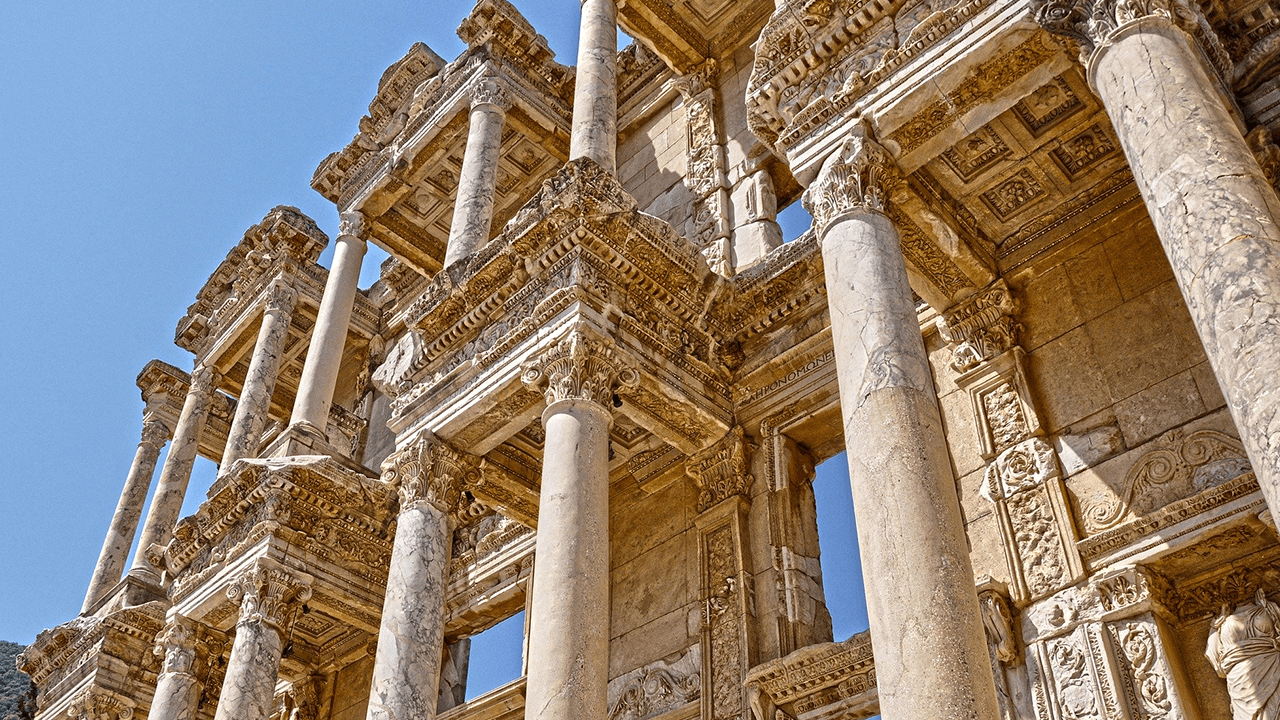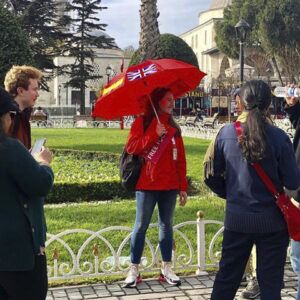Currency and Exchange in Ephesus: Everything You Need to Know
When visiting Ephesus and its surroundings, it is essential to familiarize yourself with the local currency and manage your money effectively. This article provides detailed information about the Turkish Lira, methods for exchanging money, and practical tips to ensure a hassle-free trip.
The Turkish Lira: Banknotes and Coins
Since January 1, 2009, the Turkish Lira (TL) has been the official currency of Turkey, replacing the New Turkish Lira after four years of circulation. The Turkish Lira is available in the following denominations:
- Coins: 5, 10, 25, and 50 kuruş (cents) as well as 1 lira coins.
- Banknotes: 5, 10, 20, 50, 100, and 200 lira notes.
It is important to note that large denominations, such as 100 and 200 lira notes, are often not accepted by small businesses and taxis. Therefore, carrying small notes and coins is recommended for minor transactions. Always check the change you receive to avoid errors or misunderstandings.
Exchange Rates and Conversion
Exchange rates may vary slightly depending on the location and time. As an approximate reference:
- 1.00 Euro ≈ 36.50 TL
For the best exchange rates, use ATMs or visit official exchange offices. Avoid exchanging money in unregulated places, as they might offer less favorable rates.
Where to Exchange Money
In Ephesus and nearby towns like Selçuk, Kusadasi, and Izmir, you’ll find several options for exchanging money or withdrawing cash:
- ATMs: These are the most practical and secure option. Most ATMs accept international cards such as American Express, Visa, MasterCard, Cirrus, Maestro, and Eurocard. They also offer instructions in multiple languages, including English.
- Banks: Local banks often provide competitive exchange rates. You can find several branches in Selçuk and Kusadasi.
- Exchange Offices: Available in tourist areas, although their rates may not be as favorable as those of banks.
- Hotels: Some hotels offer currency exchange services, but they generally charge higher rates and additional fees.
Using Credit Cards
Credit cards are widely accepted in Ephesus, especially in hotels, restaurants, and tourist shops. However, local markets and small businesses may prefer cash. Before traveling, notify your bank to prevent your card from being blocked for suspected fraud.
Practical Tips for Managing Money in Ephesus
- Avoid carrying large amounts of cash: Use ATMs to withdraw money as needed.
- Keep small bills handy: These are especially useful for paying in taxis, local markets, and small shops.
- Compare exchange rates: Check multiple options to get the best value if you need to exchange money.
- Check your change: Always verify the amount you receive, particularly in busy tourist areas.
Currency Exchange Services in Nearby Cities
In nearby cities like Selçuk, Kusadasi, and Izmir, you’ll find a wide range of ATMs, exchange offices, and banks. Here’s a summary:
- Selçuk: The closest town to Ephesus. Most banks are located near the bus station.
- Kusadasi: As a major port, it offers many currency exchange options and ATMs in tourist areas.
- Izmir: Being a large city, Izmir has an extensive banking network and numerous ATMs spread across the city.
Conclusion
Planning how to manage your money in Ephesus is essential for a smooth and enjoyable visit. Understanding the available options for currency exchange, using credit cards, and carrying small denominations will help you avoid inconveniences. Whether you’re exploring ancient ruins or enjoying the region’s tourist offerings, being prepared will allow you to make the most of your experience in this fascinating destination.



3 thoughts on “Currency and Exchange in Ephesus”
★★★★★
Learning about and visiting ‘Currency and Exchange in Ephesus’ was both fun and educational. Everyone should experience this!
★★★★★
Discovering ‘Currency and Exchange in Ephesus’ was one of the highlights of my trip. Don’t miss out on this gem!
★★★★★
Every moment spent at ‘Currency and Exchange in Ephesus’ was filled with wonder and learning. It’s a place I will always cherish.